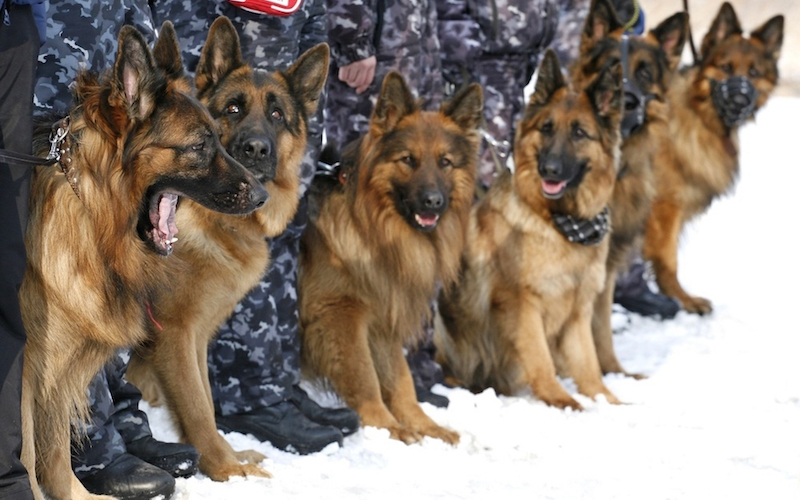
Russia’s Battle of the Big Beasts?
A report in RBK suggests that the Federal Anti-Drug Service (FSKN) and the Federal Migration Service (FMS) are to be rolled into the Ministry of Internal Affairs (MVD). Meanwhile (and this is an idea which has been floated before) former Putin bodyguard and judo sparring partner Viktor Zolotov will become the new Minister of Internal Affairs. Current minister Kolokoltsev is, after all, too much of a professional and too little of a close Putin crony for such a crucial position, the thinking goes, despite his recent efforts to reinvent himself as a populist authoritarian of sorts.
The official logic would be to save money through efficiency savings. Maybe, though rarely does that actually happen when any government makes this claim. The FSKN has done, in my opinion, an at best mediocre job, not least as its determination to focus on interdiction and destruction of the supply-side (at which, incidentally, it has failed) has also derailed efforts to address the demand, and Russia is now the world’s largest per-capita heroin market. Its main preoccupation often seems rather empire-building (even wanting its own external intelligence role) and turf wars with other agencies. But whether rolled into the MVD or not (and this might at least address some of the jurisdictional issues which do arise between the FSKN and the police), there will still be an FSKN-like agency. With the FMS, the logic is even less apparent, although with the growing public disquiet about foreign migrants and workers, it is likely to become a more politically-significant (and thus fraught) body; the FMS may be in for a rough time ahead of it, but it will certainly be in the public eye.
This reorganisation would not alter (or probably improve) the law-enforcement landscape in any especially meaningful way.
It would, though, have a dramatic impact on security politics. An expanded MVD, one which now deploys both the investigative capacities of the FSKN and the publicity options of the FMS, especially one under a close Putinist, would pose a challenge to the primacy of the Federal Security Service (FSB), hitherto the biggest dog in domestic security affairs.
Now, this might be the idea, the creation of a counter-weight in classic Russian/Soviet style. But I have seen no evidence of any dissatisfaction with the FSB coming from Putin or his circle (in whose number are FSB director Bortnikov and former director Patrushev). If it does happen–and so far, while I don’t think Zolotov’s elevation is a stretch, I am not otherwise convinced–then it signals one of two things:
1. Putin is getting worried about undue dependence on the FSB, either because he thinks it’s not doing its job properly or because he’s concerned it might pose a threat to him. At the moment, this is hard to believe.
2. Putin wants the MVD invigorated and expansive as an internal policing and security, to handle the grunt work behind the FSB and Zolotov, as a KGB veteran himself, is acceptable also to the FSB as the head of such a strengthened agency
I suspect the second of these would be the more likely answer and would suggest a further toughening of the Russian security state. We’ll see. Of course, if the MVD were so strengthened, given the essentially competitive nature of Russian court/bureaucratic politics, it is almost inconceivable that it would not tussle with the FSB, and Zolotov himself might be willing to let it. This is what happens when institutional checks are nonexistent and the core message seems to be a Darwinian “may the strongest survive (and prosper).”
I’m indebted to Ekaterina Schulmann for bringing the RBK article to my attention.
This article was originally posted in In Moscow’s Shadows.
